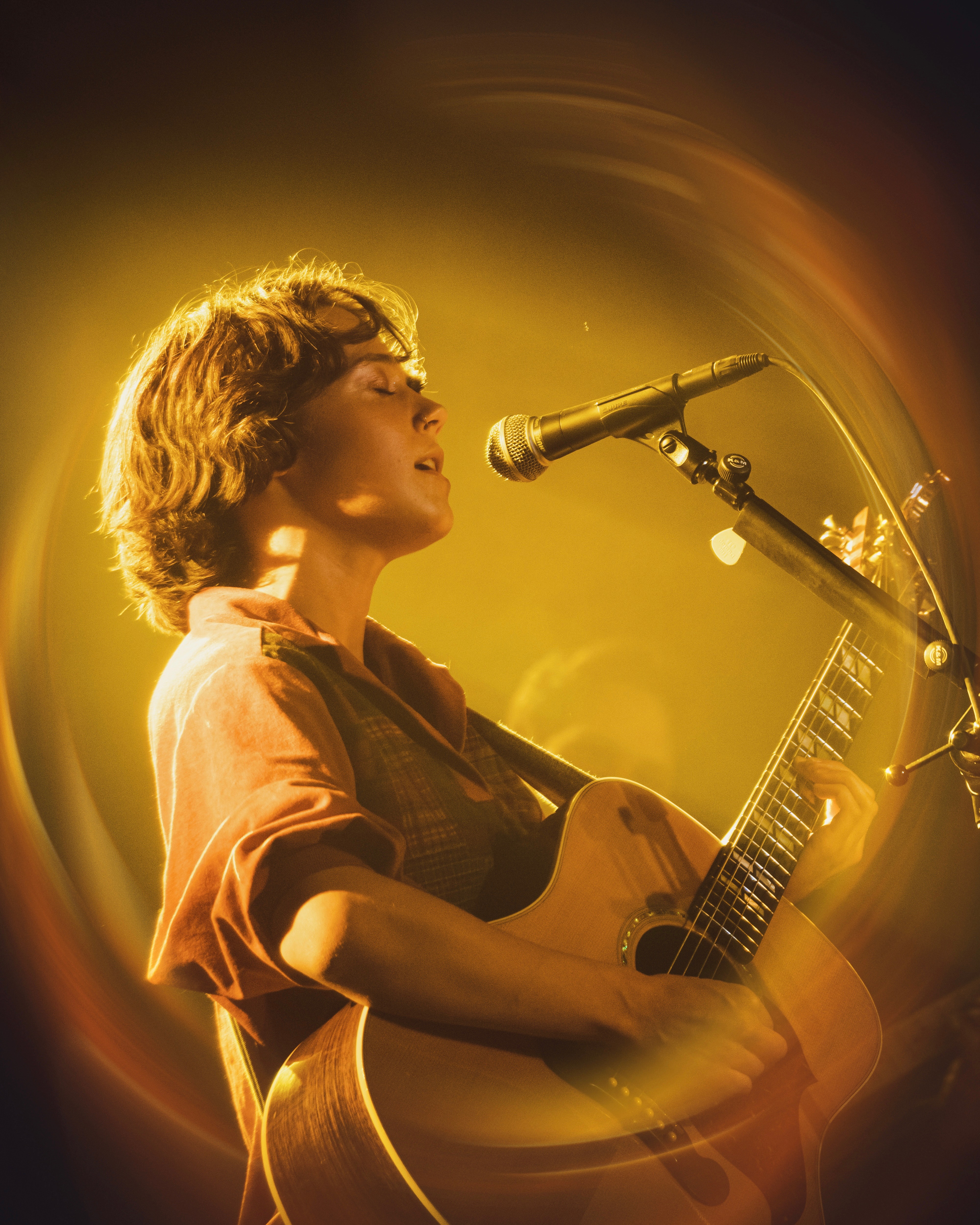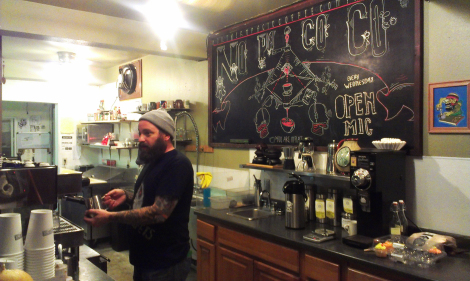Sometimes it feels like God has a plan. As a student at a Lutheran-founded university that advertises itself as a safe-haven for queer people, I know I’m not alone in my complicated religious beliefs. And like many fellow students, I take refuge in music—when I believe, when I don’t.
I had close to a religious moment when a friend I met at PLU said they were going to an Amelia Day concert. Not because I didn’t recognize the name, but because I did. To me, though, she was still a fifth grader at Sumner Presbyterian church, sharing doughnuts and cocoa with me. I looked her up out of some sense of duty to friends-past, but from the first track of her album I was spellbound. I’m not ashamed to admit I felt a few flashes of jealousy. I can write, sure, but this was art—and published at that! Her music made me feel like I was back in church—during the good times—while some lines rattled uncomfortably in my head, shaking up my religious trauma. I sent her a message on Instagram once the artist’s envy subsided into admiration, and I asked for an interview.
Day describes her style as folk-storytelling with influences of pop, R&B, soul, jazz, and funk. She isn’t country, but has a slight twang to her vocals, picked up from going to college in Nashville. She explains how she did music at Sumner High School, and by then she knew it was what she wanted to do. She’d been writing music for a long time—as her place to reflect and vent. She just “didn’t know if it was feasible” to make a career out of it because she had no idea what it meant to be a recording artist. Day shared that education in public school for people aspiring to be independent musicians is lacking. People make you feel like it’s impossible. “You assume you can only make money if you’re at the level of Harry Styles or Taylor Swift”
She talked with warmth and passion about her musician friends, and it’s clear that they’re what made her believe she could take the leap and start making music. She’s inspired by “seeing their creative process and their excitement about their own projects,” which leads her to grander aspirations than she ever could have imagined before. When Day was young, she aimed to be a songwriter—to avoid the stage, but as she leaned out of her comfort zone she realized that she loved “getting to perform live, which is so ironic because having to perform live was my least favorite part.” Her vocals are stunning during live performances. Barely distinguishable from the album, except you can hear her feeding off the performance of the musicians with her, the dark rasp resting among the strings then soaring upwards and lifting the whole band to the musician’s little version of heaven.
Her music reflects her complex, changing religious views. She says that she is not exactly Christian anymore. “Christianity now is more like this mythology because they’re the stories I grew up listening to. It’s nostalgic as much as it has been a source of pain and confusion.” As a queer artist, her disagreements with the Church are exacerbated by the social discord in current America. She explains that the political extremism of many Evangelical Christians goes against her beliefs. Aligning with the capital C Church is tricky when politics get involved. Along with exploring the intersection of beauty and pain in Christianity, she has been using her music to explore queerness and she ended by saying “I don’t want to censor myself. Music is always more powerful when it’s uncensored.”
For anyone looking to dig into Amelia Day’s discography, check out Eastward of Eden, Therapist’s Wet Dream, and Skipping Down the Sidewalk.
















